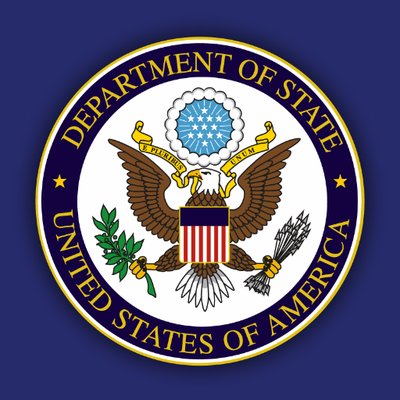On October 25, U.S. and Chinese officials met in Washington, DC for the U.S.-China Counterterrorism Dialogue as well as an expert-level exchange on Countering Improvised Explosive Devices (C-IED). The latter exchange is the second to be held on the topic, following the inaugural C-IED discussion in 2015.
Acting Coordinator for Counterterrorism Justin Siberell led the U.S. delegation, which includes officials from the Departments of State, Justice, and Homeland Security. The Chinese inter-agency delegation of over thirty members was led by Ministry of Foreign Affairs Assistant Minister, Li Huilai.
The U.S.-China Counterterrorism Dialogue was designed to advance a common agenda and increase coordination on counterterrorism issues. Topics included regional terrorist threats, aviation security, information sharing, border security, safeguarding human rights, and efforts to counter violent extremism.
The United States looks forward to continued counterterrorism exchanges with China to broaden and deepen cooperation between the two countries.
Meanwhile, pursuant to their shared goal of advancing civil space cooperation, as agreed upon in the Strategic Track of the U.S. - China Strategic and Economic Dialogue in June 2015 and reaffirmed in June 2016, the United States and China convened their second Civil Space Dialogue on October 20, 2016, in Washington, DC.
This ongoing Civil Space Dialogue enhances cooperation between the two countries, promotes responsible behavior in space, and encourages greater transparency and openness on a variety of space-related issues.
The Department of State led the meeting for the United States and the China National Space Administration represented China. Also supporting this meeting were U.S. Government representatives from the National Aeronautics and Space Administration, including Administrator Charles Bolden, the National Oceanic and Atmospheric Administration, the U.S. Geological Survey, the Federal Aviation Administration, and the Department of Defense.
At the meeting, U.S. and Chinese officials exchanged information on space policies and programs, and conducted discussions on further collaboration related to: Earth and space science; space and terrestrial weather; space debris and spaceflight safety; and the long-term sustainability of outer space activities.
Both sides agreed to hold the third meeting of the Dialogue in China in 2017.
Source: U.S. State Department

